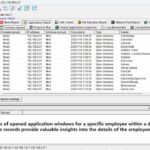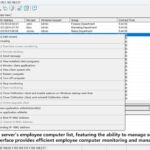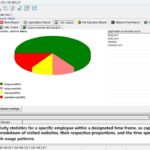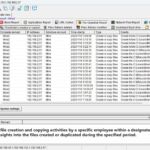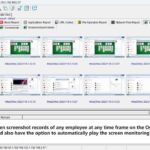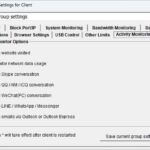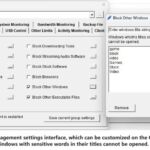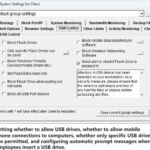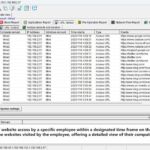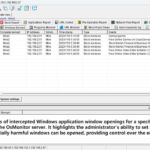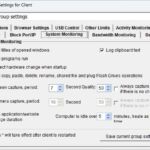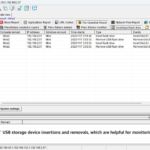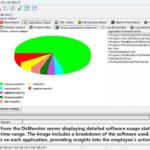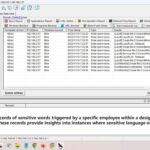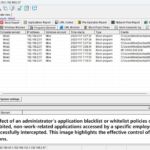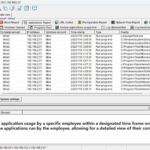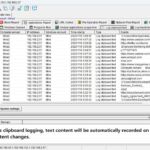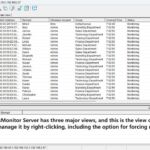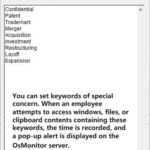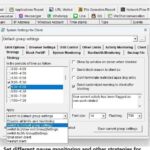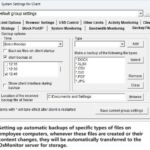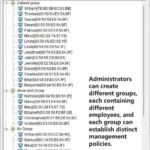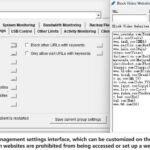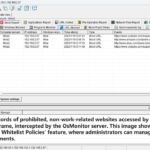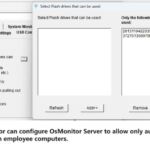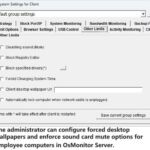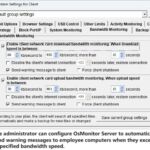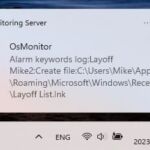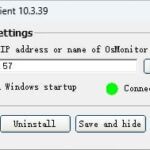Fuzzy algorithms can exhibit certain advantages in local area network (LAN) management software and find applications in scenarios dealing with fuzzy information and uncertainties. The following is a discussion of the advantages, misconceptions, and scalability of fuzzy algorithms in LAN management software.
Advantages of Fuzzy Algorithms in LAN Management Software:
- Handling Fuzzy Information: LAN management involves a vast amount of network data and information, some of which may be uncertain or vague. Fuzzy algorithms can effectively process such fuzzy information, aiding in more accurate analysis and decision-making. By applying fuzzification and fuzzy inference, fuzzy algorithms can map ambiguous inputs to clear outputs, thereby enhancing the understanding of network states and behaviors.
- Fuzzy Matching: LAN management software may require tasks like device identification, protocol recognition, anomaly detection, etc. Fuzzy algorithms can be applied in fuzzy matching scenarios to help identify and match data or rules with fuzziness, thereby improving the accuracy and robustness of matching. Through defining fuzzy sets and fuzzy rules, fuzzy algorithms can handle situations with fuzzy or partial matches, better adapting to the diversity and uncertainties in real network environments.
- Adaptability: Fuzzy algorithms possess adaptability and flexibility, allowing them to adjust and optimize based on the actual situations in LAN management software and adapt to different network environments and changes. By using fuzzy inference and fuzzy control methods, fuzzy algorithms can dynamically adjust according to changing network conditions and requirements, providing better management and optimization strategies.
Misconceptions of Fuzzy Algorithms in LAN Management Software:
- Inaccuracy: Fuzzy algorithms may introduce some errors when dealing with fuzzy information, leading to reduced result accuracy. Careful design of fuzzy measurements and rule settings during fuzzification and fuzzy inference is necessary to minimize the impact of errors. Additionally, for certain complex network situations, fuzzy algorithms might not provide sufficiently accurate results.
- Complexity: Fuzzy algorithms typically involve complex mathematical theories and computational methods, requiring software developers and users to have some level of expertise to correctly understand and apply them. Furthermore, implementing and optimizing fuzzy algorithms need consideration of factors like computational complexity and resource consumption.
Scalability of Fuzzy Algorithms in LAN Management Software:
- Adaptation to Different Scales: Fuzzy algorithms can be scaled based on the size of the LAN management software, making them applicable from small-scale to large-scale complex networks. The algorithm design and implementation can be optimized and adjusted for networks of different sizes. For large-scale networks, distributed computing and parallel computing technologies can be employed to enhance the scalability and efficiency of the algorithms.
- Expandable Application Fields: Fuzzy algorithms can be applied in various domains within LAN management software, such as traffic management, fault diagnosis, performance optimization, etc. Fuzzy algorithms can be flexibly customized and extended based on specific management needs and problem characteristics. As technology continues to advance, there remains further potential for the application of fuzzy algorithms in various domains of LAN management software.
In conclusion, fuzzy algorithms offer certain advantages in LAN management software, but care should be taken to avoid misconceptions and consider system scalability. The ultimate choice should depend on specific application scenarios and requirements. In practical applications, combining other algorithms and techniques, as well as appropriate data preprocessing and post-processing methods, can further enhance the efficiency and accuracy of LAN management software.
About OsMonitor:
The mission of OsMonitor is to create a Windows computer system tailored for work purposes, effectively regulating employee computer behavior. It enables employers to understand what employees are doing each day, monitoring every action, including screen activity and internet usage. Additionally, it restricts employees from engaging in specific activities such as online shopping, gaming, and the use of USB drives.
OsMonitor, designed purely as software, is remarkably user-friendly and requires no additional hardware modifications. A single management machine can oversee all employee computers. As a leading brand in employee computer monitoring software with over a decade of successful operation, OsMonitor has rapidly captured the global market with its minimal file size and excellent cost-effectiveness compared to similar software. At this moment, thousands of business computers worldwide are running OsMonitor daily.




